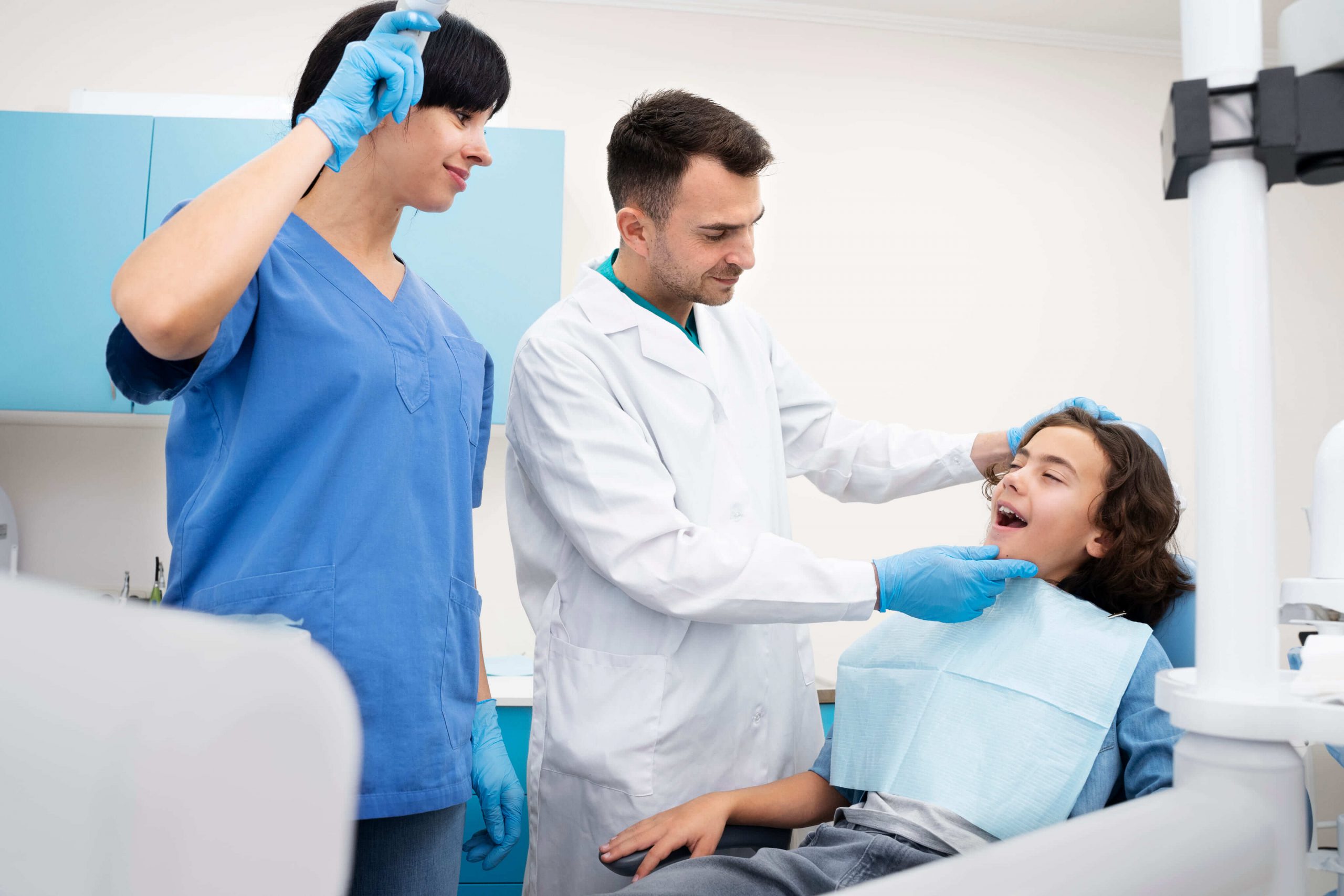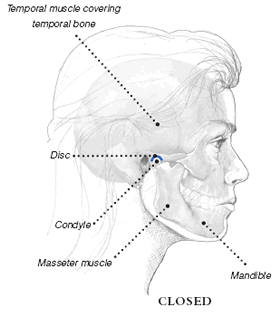
How do you know if you have TMJ pain?
Majority of diseases affecting your mouth and face present with pain and discomfort in the teeth, gums, cheeks, head and neck region and it becomes very difficult to find out the real cause behind the problem. Exact diagnosis is essential for the planning of treatment to alleviate pain and discomfort. Early intervention will prevent occurrence of the complications and aggravation of pain. Pain and discomfort will not resolve if the problem is misdiagnosed. General dentists usually have the experience of dealing with teeth and gum diseases. So, How do you really know if you have TMJ?

tmd tmj dentist chevy chase md e1520831615114
What is TMJ?
TMJ or temporo mandibular joint is an important joint which connects your head and jaws which can get fatigued, diseased and damaged as well. Severe pain and distress can be felt due to disorders involving TMJ especially in persons under stress, anxiety and depression.
When should I visit the TMJ dentist?
If you feel pain, discomfort, little opening of mouth than normal or clicking sounds and noises while eating, chewing, laughing or talking, you need to visit your TMJ dentist for complete check up and examination.
Why healthy TMJ is important?
Temporo Mandibular Joint (TMJ) plays an important role in the normal functioning of your mouth, teeth and head. Whenever you talk, laugh, chew and bite food or drink water, your TMJ comes in action. Even yawning is only possible due to TMJ movements. TMJ is among the most dynamic joints of human body. Healthy TMJ is vital for the proper functioning and movements of your mouth and head region.

tmj1
What usually happens during TMJ disorder?
TMJ disease shows different symptoms,
- Difficulty in opening your mouth early in the morning,
- Soreness of mouth on waking up from sleep,
- Tense jaws with the habit of clenching and grinding of teeth,
- Limited opening of mouth and jaws upside down as well as sideways,
- Worn and damaged teeth,
- Previous history of multiple dental treatments such as root canal treatments, dental implants, dental fillings, dental bridges and crowns,
- Receding gums due to gum and socket bone disease,
- Difficulty of breathing during night as the tongue falls back and blocks airway,
- Chewing pain and discomfort,
- Severe pain within and around your ears,
- Severe pain and discomfort in your temple area, behind eyes and back of head,
- Flu and sinus irritation,
- Pain and discomfort in shoulders, neck, head and back,
- Cramped legs,
- Problems in bite,
- Loss of appetite.
What are the different causes of TMJ disease?
Among the most common reasons for the occurrence of TMJ pain is the stress and anxiety for anticipated events such as examination in case of students, interviews, presentations and job promotion tests. TMJ pain can also occur due to,
- Injuries to the joint and jaws in an accident or fight,
- Teeth grinding habits (as in bruxism),
- Sleep apnea,
- TMJ arthritis,
- TMJ dislocation due to wide opening frequently as in yawning,
- Bite problems which may develop due to faulty crowns, bridges, dental implants or high tooth fillings,
- Eating and biting hard foods,
- Tender muscles,
- Psyho-social effects,
- Stress and anxiety aggravates TMJ pain developed by any of the above conditions.
What will be done by the TMJ dentist during consultation appointment?
It is very important to know if you are TMJ pain in your jaws or tooth pain before your treatment in the dental office. Your TMJ specialist will,
- Thoroughly take history of the pain, examine the area, and evaluate your TMJ movements to note abnormalities and findings,
- A full mouth radiograph involving the all teeth in upper & lower jaw, Para nasal air sinuses, muscles of the face and TMJ will be taken and evaluated for evident deformities or fractures,
- A small radiograph involving little number of teeth may be advised by the specialist if he finds it essential to rule out toothache,
- Gums will be checked thoroughly to rule out gum diseases,
- Normal jaw opening will be measured. Normally your mouth opens approximately 38-45mm and it becomes limited in TMJ diseases and fibrosis of inner side of cheeks,
- Your TMJ specialist will evaluate up down, back and forth and side to side movements of your mouth as well,
- Severity of pain and discomfort will be checked to check the seriousness of TMJ disease,
- Pain will be checked during eating, chewing, drinking, yawning and other functions of your mouth and jaws,
- Mouth will be widely opened and TMJ specialist will listen for clicking sounds and pain on opening which occur during TMJ diseases,
- If needed, special investigations such as CT scan and MRI can be advised by the TMJ specialist.
Is it necessary to get consultation from TMJ specialist in case of pain in jaws?
Yes. You must get an expert opinion from the TMJ specialist whenever you feel pain in your jaws which does not subside easily and clicking noises are heard on opening your mouth widely.
Can I get an idea of TMJ problem myself at home?
Your TMJ is located right in front of your ears. Place your finger over the TMJ and open your mouth gradually. Listen for any type of clicking noises and feel for the pain while opening your jaws. You will feel the joint moving while opening mouth. Pain and clicking sounds will give you an indication about TMJ disease and need for visiting your TMJ specialist.
Novel treatments can now correct the causes of TMJ so permanent appliances such as nighguards do not need to be worn anymore. One such appliance is the Vivos DNA appliance.

 (301) 421 1996
(301) 421 1996 burtonsvillesmiles@gmail.com
burtonsvillesmiles@gmail.com